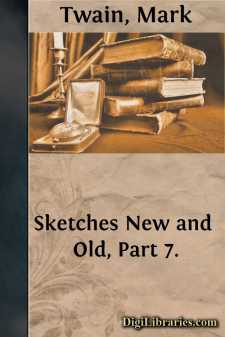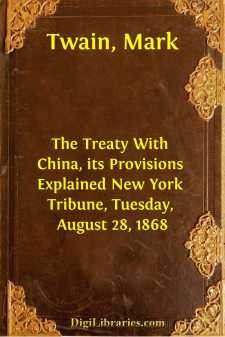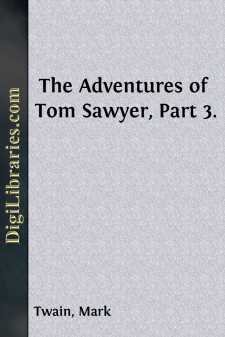Categories
- Antiques & Collectibles 13
- Architecture 36
- Art 48
- Bibles 22
- Biography & Autobiography 813
- Body, Mind & Spirit 142
- Business & Economics 28
- Children's Books 17
- Children's Fiction 14
- Computers 4
- Cooking 94
- Crafts & Hobbies 4
- Drama 346
- Education 46
- Family & Relationships 57
- Fiction 11829
- Games 19
- Gardening 17
- Health & Fitness 34
- History 1377
- House & Home 1
- Humor 147
- Juvenile Fiction 1873
- Juvenile Nonfiction 202
- Language Arts & Disciplines 88
- Law 16
- Literary Collections 686
- Literary Criticism 179
- Mathematics 13
- Medical 41
- Music 40
- Nature 179
- Non-Classifiable 1768
- Performing Arts 7
- Periodicals 1453
- Philosophy 64
- Photography 2
- Poetry 896
- Political Science 203
- Psychology 42
- Reference 154
- Religion 513
- Science 126
- Self-Help 84
- Social Science 81
- Sports & Recreation 34
- Study Aids 3
- Technology & Engineering 59
- Transportation 23
- Travel 463
- True Crime 29
Our website is made possible by displaying online advertisements to our visitors.
Please consider supporting us by disabling your ad blocker.
The Gilded Age, Part 1.
by: Mark Twain
Description:
Excerpt
CHAPTER I.
June 18—. Squire Hawkins sat upon the pyramid of large blocks, called the "stile," in front of his house, contemplating the morning.
The locality was Obedstown, East Tennessee. You would not know that Obedstown stood on the top of a mountain, for there was nothing about the landscape to indicate it—but it did: a mountain that stretched abroad over whole counties, and rose very gradually. The district was called the "Knobs of East Tennessee," and had a reputation like Nazareth, as far as turning out any good thing was concerned.
The Squire's house was a double log cabin, in a state of decay; two or three gaunt hounds lay asleep about the threshold, and lifted their heads sadly whenever Mrs. Hawkins or the children stepped in and out over their bodies. Rubbish was scattered about the grassless yard; a bench stood near the door with a tin wash basin on it and a pail of water and a gourd; a cat had begun to drink from the pail, but the exertion was overtaxing her energies, and she had stopped to rest. There was an ash-hopper by the fence, and an iron pot, for soft-soap-boiling, near it.
This dwelling constituted one-fifteenth of Obedstown; the other fourteen houses were scattered about among the tall pine trees and among the corn-fields in such a way that a man might stand in the midst of the city and not know but that he was in the country if he only depended on his eyes for information.
"Squire" Hawkins got his title from being postmaster of Obedstown—not that the title properly belonged to the office, but because in those regions the chief citizens always must have titles of some sort, and so the usual courtesy had been extended to Hawkins. The mail was monthly, and sometimes amounted to as much as three or four letters at a single delivery. Even a rush like this did not fill up the postmaster's whole month, though, and therefore he "kept store" in the intervals.
The Squire was contemplating the morning. It was balmy and tranquil, the vagrant breezes were laden with the odor of flowers, the murmur of bees was in the air, there was everywhere that suggestion of repose that summer woodlands bring to the senses, and the vague, pleasurable melancholy that such a time and such surroundings inspire.
Presently the United States mail arrived, on horseback. There was but one letter, and it was for the postmaster. The long-legged youth who carried the mail tarried an hour to talk, for there was no hurry; and in a little while the male population of the village had assembled to help. As a general thing, they were dressed in homespun "jeans," blue or yellow—here were no other varieties of it; all wore one suspender and sometimes two—yarn ones knitted at home,—some wore vests, but few wore coats. Such coats and vests as did appear, however, were rather picturesque than otherwise, for they were made of tolerably fanciful patterns of calico—a fashion which prevails thereto this day among those of the community who have tastes above the common level and are able to afford style. Every individual arrived with his hands in his pockets; a hand came out occasionally for a purpose, but it always went back again after service; and if it was the head that was served, just the cant that the dilapidated straw hat got by being uplifted and rooted under, was retained until the next call altered the inclination; many' hats were present, but none were erect and no two were canted just alike. We are speaking impartially of men, youths and boys. And we are also speaking of these three estates when we say that every individual was either chewing natural leaf tobacco prepared on his own premises, or smoking the same in a corn-cob pipe. Few of the men wore whiskers; none wore moustaches; some had a thick jungle of hair under the chin and hiding the throat—the only pattern recognized there as being the correct thing in whiskers; but no part of any individual's face had seen a razor for a week.
These neighbors stood a few moments looking at the mail carrier reflectively while he talked; but fatigue soon began to show itself, and one after another they climbed up and occupied the top rail of the fence, hump-shouldered and grave, like a company of buzzards assembled for supper and listening for the death-rattle....












